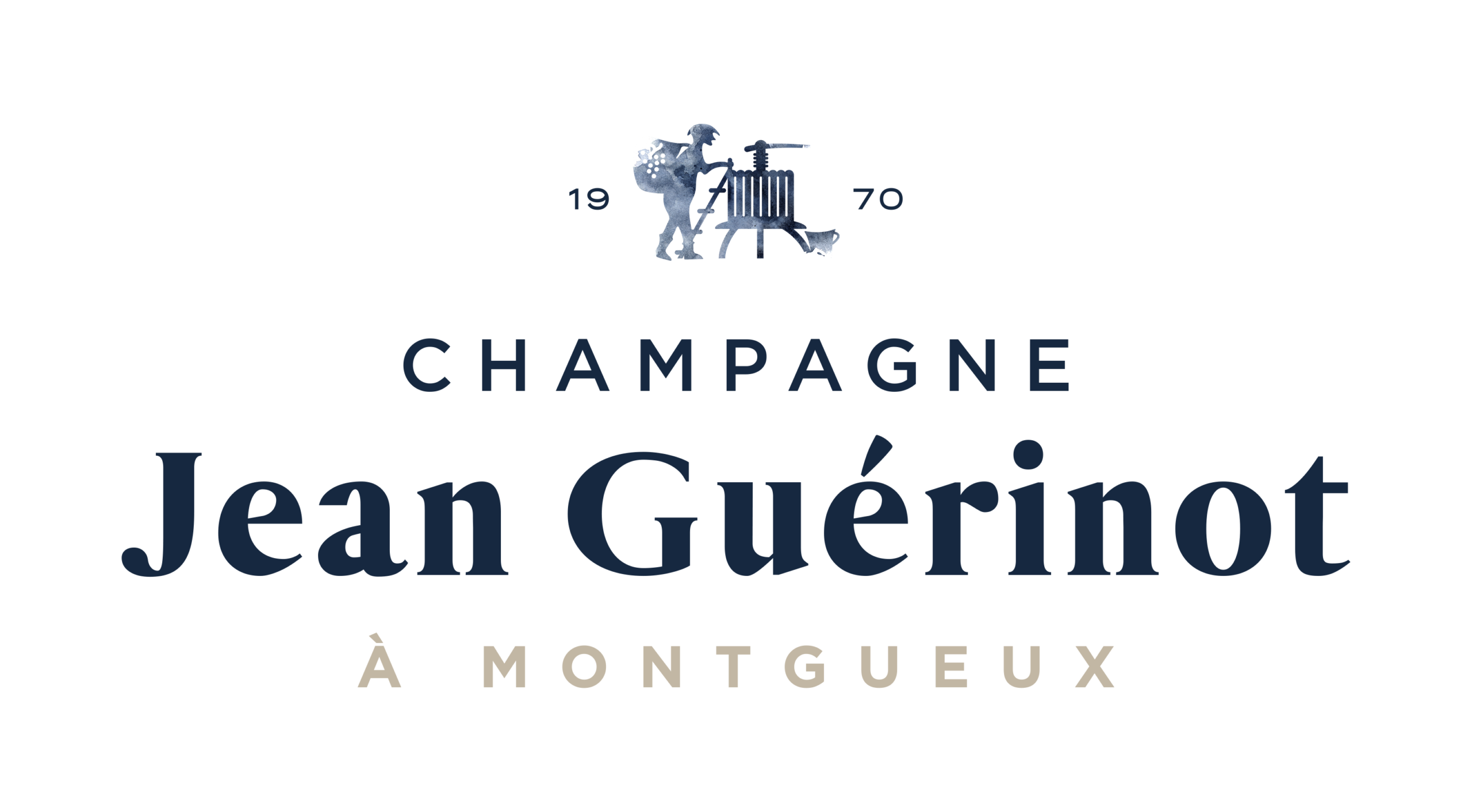AN IDEA BORN IN THE CHAMPAGNE VINEYARDS OF MONTGUEUX THAT WINS IN BOSTON!
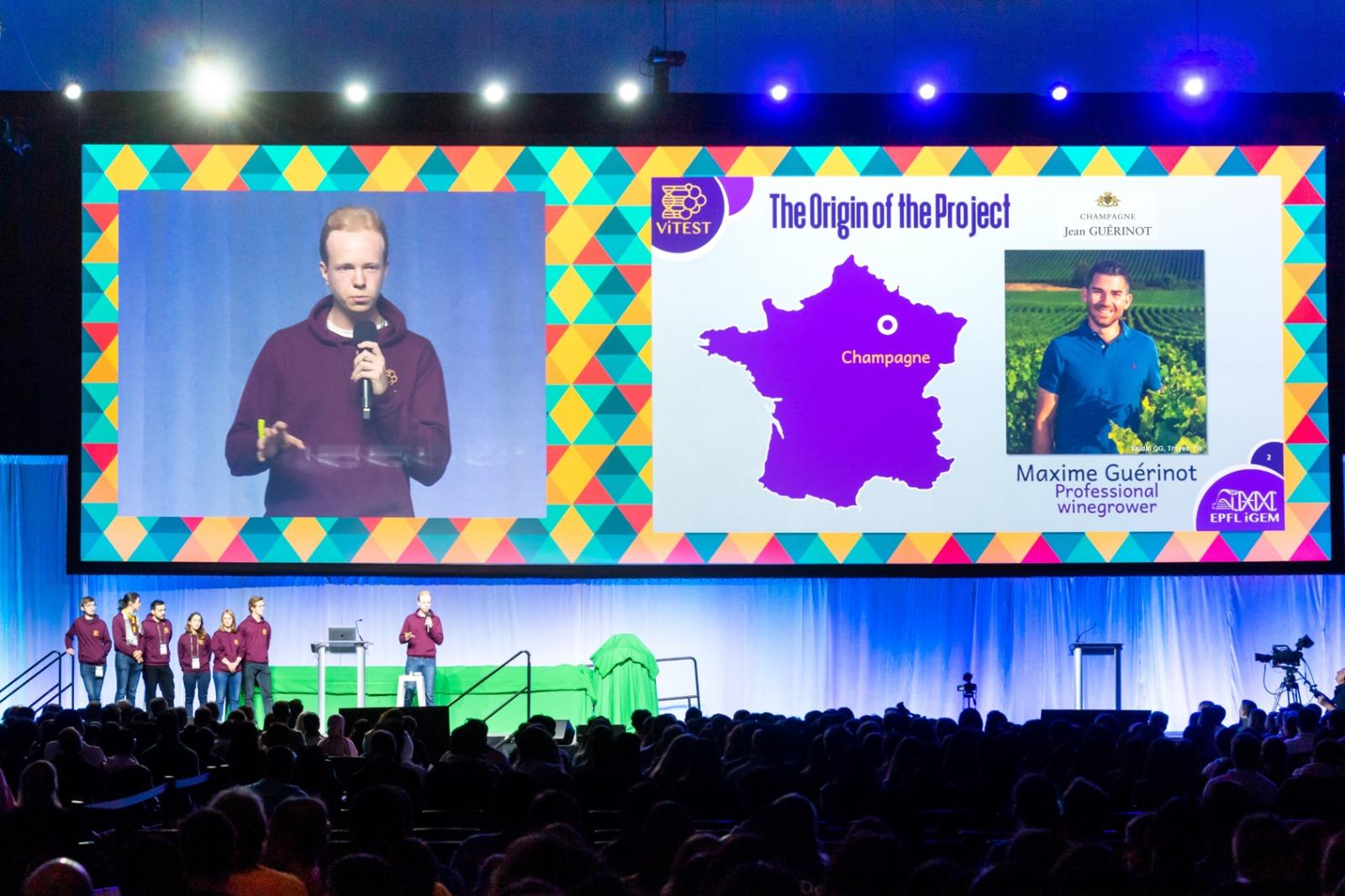
Presentation of the project in Boston, MA (source: EPFL)
What connection can there be between the team of researchers who won the IGEM Grand Prix in Boston and our Montgueux vineyard?
The birth of an idea
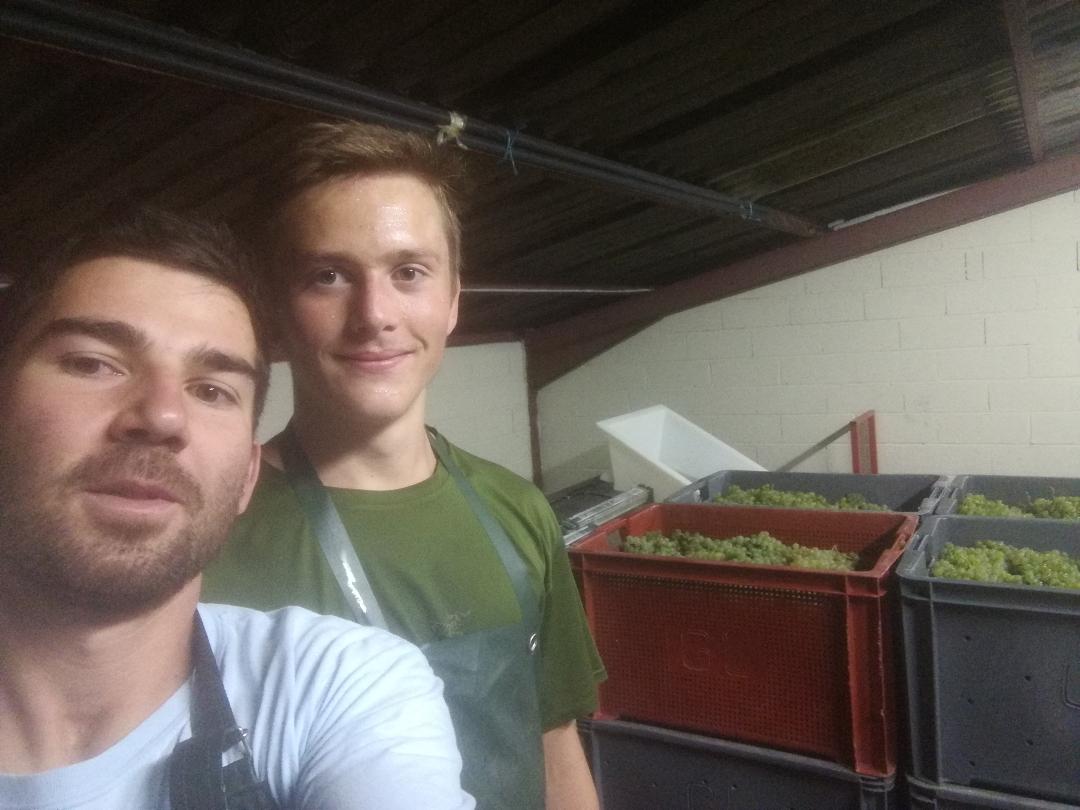
The cousins (Théo, on the right and Maxime,on the left) in place for the 5am press (personal source)
The story begins with the 2018 harvest. That year, the harvest promises to be very early. Good news! The students will still be on holiday.
I am therefore recruiting several of my cousins, including Théo, who is about to enter in his second year at EPFL Lausanne. Well aware that I have not created a vocation for a future winegrower, I still notice a certain interest in our beautiful profession.
The grape harvest is over, everyone goes back to their school with nice memories…and some aches and pains. Months go by, the musts ferment, the students study. Suddenly, during the spring, Theo calls on me in a completely unexpected way.
“We’re setting up a project with colleagues and we’re looking for a subject that combines genetic research and practical application. You wouldn’t have an idea about a vine disease? ”
Delighted that my winemaking skills are thus mobilized, I suggest the subject of Flavescence Dorée.
The Flavescence Dorée?!?
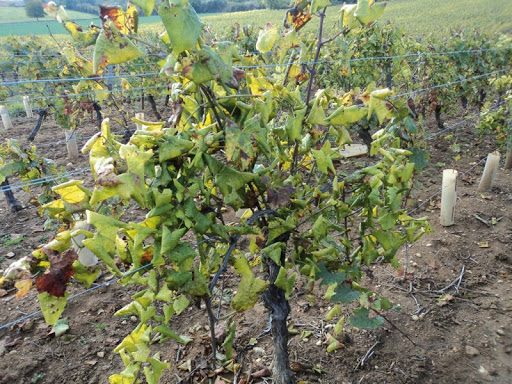
Flavescence Dorée (source:bourgogneaujourdhui.com)
Pretty name, but a plague on the wine world.
It is a disease of the vine, caused by a phytoplasma vectorized by a leafhopper (small flying insect). Incurable and extremely epidemic, it has already forced many wine-growing regions to massively uproot plots of land.
One of the keys to controlling it is to rapidly identify the slightest infected vine stock in order to take quarantine measures. However, the visual symptoms are similar to those of a related but much less dangerous disease called “bois noir”.
Today, the only way to identify a vine stock affected by Flavescence Dorée is to have it sampled by a specialized technician and analyzed in the lab…a long and costly process.
Finding a way to quickly (and for sure) differentiate between FD and Bois Noir-if possible directly at the plot- would be a great step forward in preventing the damage of an epidemic.
A project that is taking shape…and winning!
My role in this story ends there, at the birth of an idea.
My knowledge in genetics and biology is not strong enough to detail the project afterwards. Here is the link for those who love scientific research: https://2019.igem.org/Team:EPFL
The EPFL team therefore succeeded in developing a prototype tester. And it was this project that enabled them to win the Grand PRix from the IGEM in Boston last November. This is an international competition that is renowned in the world of biological research.
Congratulations to the whole team and I hope to be able to share with you a flute (or a bottle) of Champagne Guérinot to sprinkle on this great victory!
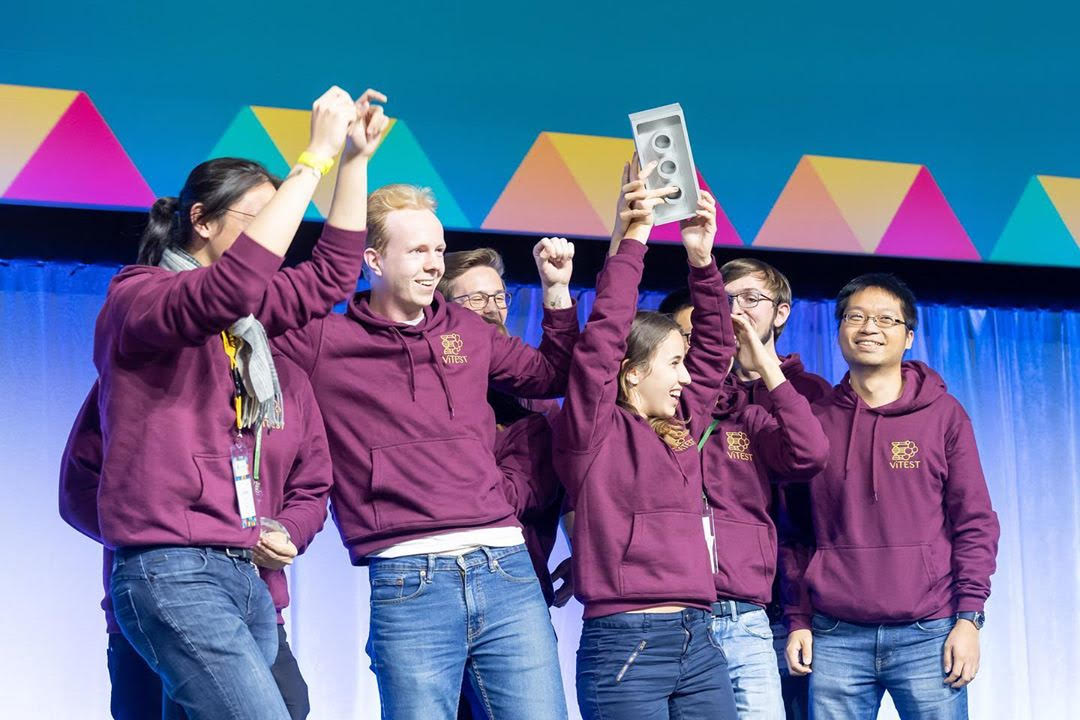
Presentation of the IGEM Grand Prize to the EPFL team (source: EPFL)
More info:
